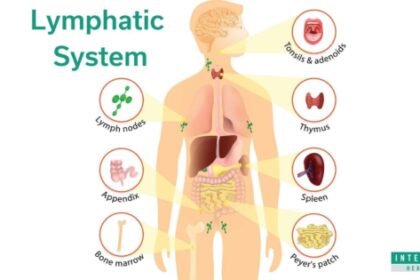Understanding Cortisol: The Fat-Storing Hormone and Natural Ways to Reduce It
In the realm of hormones, cortisol often gets a bad rap, especially when it comes to weight management. As the primary stress hormone, cortisol plays a crucial role in our body’s fight-or-flight response. However, when levels of cortisol remain chronically elevated, it can lead to a myriad of health issues, including weight gain and difficulty in losing excess fat. Understanding cortisol and its impact on our body is the first step toward effectively managing it. Let’s delve into what cortisol is, why it’s associated with fat storage, and explore three of the best natural methods to reduce cortisol levels.
What is Cortisol?
Cortisol, often dubbed the “stress hormone,” is produced by the adrenal glands in response to stress signals from the hypothalamus and pituitary gland in the brain. Its primary function is to mobilize energy stores and increase metabolism to help the body cope with stressors, whether they’re physical, emotional, or psychological. Cortisol serves as a crucial component of our body’s fight-or-flight response, aiding in quick decision-making and providing a burst of energy in emergency situations.
Why is Cortisol Associated with Fat Storage?
While cortisol is essential for survival, chronically elevated levels can wreak havoc on our health. One significant concern is its role in fat storage. When cortisol levels remain high for extended periods, it can lead to increased appetite, cravings for sugary and fatty foods, and storage of fat, particularly around the abdomen. This abdominal fat deposition is linked to various health risks, including cardiovascular disease, type 2 diabetes, and metabolic syndrome.
Additionally, cortisol stimulates the breakdown of muscle tissue into glucose, which provides a quick source of energy during stressful situations. However, prolonged muscle breakdown can result in decreased muscle mass and a slower metabolism, making it harder to burn calories efficiently.
Natural Ways to Reduce Cortisol Levels:
1. Practice Stress Management Techniques:
– Mindfulness Meditation: Engaging in mindfulness meditation can help reduce cortisol levels by promoting relaxation and stress reduction. By focusing on the present moment and observing thoughts and sensations without judgment, mindfulness meditation can help calm the mind and lower cortisol production.
– Deep Breathing Exercises: Deep breathing exercises, such as diaphragmatic breathing or pranayama, activate the body’s relaxation response, reducing cortisol levels and promoting a sense of calm. Taking slow, deep breaths and focusing on the sensation of the breath can help alleviate stress and anxiety.
– Regular Exercise: Physical activity is a potent stress reducer and can help lower cortisol levels. Aim for a combination of aerobic exercise, such as brisk walking or cycling, and strength training to reap the maximum benefits. However, be cautious not to overtrain, as excessive exercise can elevate cortisol levels.
2. Prioritize Quality Sleep:
– Adequate sleep is crucial for maintaining healthy cortisol levels and overall well-being. Aim for 7-9 hours of quality sleep per night, as inadequate or poor-quality sleep can lead to elevated cortisol levels and increased stress. Create a relaxing bedtime routine, optimize your sleep environment, and limit exposure to screens and stimulating activities before bed to promote restful sleep.
3. Implement Lifestyle Changes:
– Healthy Diet: Consuming a balanced diet rich in whole, nutrient-dense foods can help regulate cortisol levels and support overall health. Focus on incorporating plenty of fruits, vegetables, lean proteins, and healthy fats into your meals while minimizing processed foods, caffeine, and sugary snacks, which can exacerbate cortisol spikes.
– Stress Reduction: Identify and address sources of chronic stress in your life, whether they’re related to work, relationships, or personal obligations. Incorporate stress-reducing activities such as yoga, spending time in nature, journaling, or hobbies into your routine to promote relaxation and emotional well-being.
Get These Nutrients To Reduce Cortisol Levels Naturally
Several nutrients play a crucial role in regulating cortisol levels and supporting overall stress management. Here are some of the most important nutrients for reducing cortisol:
1. Magnesium: Magnesium is often referred to as the “anti-stress” mineral because of its calming effects on the nervous system. It helps regulate cortisol production and supports relaxation by modulating neurotransmitter activity. Foods rich in magnesium include leafy green vegetables, nuts, seeds, and a variety of fruits. Even meat has magnesium, believe it or not!
I also get a great magnesium supplement called Magnesium breakthrough. Click here to visit. Use the discount code: healthywildfree at checkout to get 10% off.
2. Vitamin C: Vitamin C is an antioxidant that helps combat oxidative stress caused by elevated cortisol levels. It also supports adrenal gland function, which plays a role in cortisol regulation. Citrus fruits, strawberries, bell peppers, broccoli, and kiwi are excellent sources of vitamin C. I love the supplement Radiate 21 at Radiate21.com because it has lime, lemon and orange extract so I get my vitamin C and many other minerals, vitamins and antioxidants each day without having a complex supplement routine.
3. B Vitamins: B vitamins, particularly B5 (pantothenic acid) and B6 (pyridoxine), are involved in adrenal gland function and the synthesis of neurotransmitters that influence mood and stress response. Foods rich in B vitamins include whole grains, eggs, meat, poultry, fish, nuts, seeds, and leafy green vegetables. The best source of B vitamins however is organ meats such as liver. I take a multi-organ meat supplement from Paleovalley if I don’t have any liver on hand. You can get that for 15% off by clicking this link.
4. Omega-3 Fatty Acids: Omega-3 fatty acids, found primarily in fatty fish like salmon, mackerel, and sardines, as well as walnuts, flaxseeds, and chia seeds, have anti-inflammatory properties that can help reduce cortisol levels. They also support brain health and mood regulation, contributing to stress management. I also take a fish roe supplement from Paleovalley that is rich in Omega 3’s. Click here to get 15% off.
5. Zinc: Zinc is essential for proper immune function and helps regulate the production of cortisol. It also supports wound healing and immune system resilience during periods of stress. Foods high in zinc include oysters, red meat, poultry, beans, nuts and seeds. There’s a really great guava leaf zinc supplement that I take from Omica Organics. Click here to visit and use the discount code: VFDF7M to get 10% off your order.
6. Probiotics: The gut microbiome plays a significant role in stress response and cortisol regulation. Probiotics, or beneficial bacteria found in fermented foods like yogurt, kefir, kimchi, sauerkraut, and kombucha, can help maintain a healthy balance of gut flora, which may indirectly influence cortisol levels. Eat more fermented foods. There are not a lot of supplements that I recommend for probiotics but the one I do like which is a prebiotic, probiotic and postbiotic. It’s called symbiotic from a company called Neurohacker, or Qualia. You can click here to visit. Use the discount code: Healthywildandfree to get 10% off!
7. Adaptogenic Herbs: While not nutrients in the traditional sense, certain herbs known as adaptogens have been shown to help the body adapt to stress and modulate cortisol levels. Examples include ashwagandha, rhodiola rosea, holy basil (tulsi), and licorice root. These herbs can be consumed as supplements or brewed into teas. This is another reason I love the Radiate 21 supplement. It contains ashwagandha and Suma, a few adaptogenic herbs that really help with dealing with excess stress in the body. Visit Radiate21.com to learn more.
Incorporating a balanced diet rich in these nutrients, along with lifestyle practices that promote stress reduction, can help support healthy cortisol levels and overall well-being. However, it’s essential to consult with a healthcare professional before making significant changes to your diet or supplement regimen, especially if you have underlying health conditions or are taking medications.
In conclusion, while cortisol is a vital hormone involved in our body’s stress response, chronically elevated levels can have detrimental effects on our health, including weight gain and metabolic disturbances. By implementing natural strategies to reduce cortisol levels, such as stress management techniques, prioritizing sleep, and making lifestyle changes, you can support healthy cortisol balance and improve overall well-being. Remember, small changes in daily habits can lead to significant improvements in managing cortisol and achieving optimal health.

Radiate 21 includes cinnamon, ashwagandha and vitamin C. Three of these four ingredients, making it a great all around cortisol management supplement. Visit Radiate21.com to learn more.





